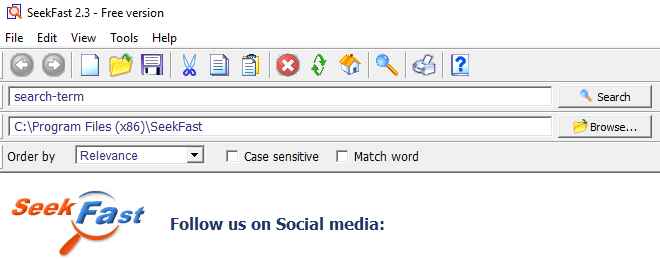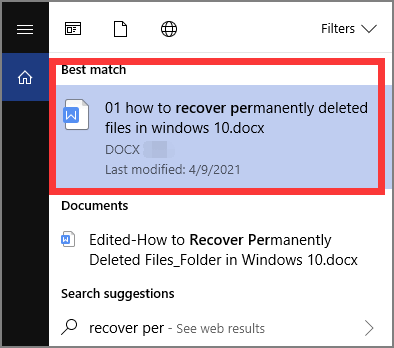


Detection of HTML pairs: By default, DocFetcher detects pairs of HTML files (e.g.Outlook PST files: DocFetcher allows searching for Outlook emails, which Microsoft Outlook typically stores in PST files.for searching in Java source code inside Jar files.) (This works quite well in combination with the customizable zip extensions, e.g. Search in source code files: The file extensions by which DocFetcher recognizes plain text files can be customized, so you can use DocFetcher for searching in any kind of source code and other text-based file formats.
SEARCHING WTHING WORD FILES WINDOWS 10 ARCHIVE
a zip archive containing a 7z archive containing a rar archive. Also, DocFetcher can handle an unlimited nesting of archives (e.g. The file extensions for zip archives can be customized, allowing you to add more zip-based archive formats as needed.

Archive support: DocFetcher supports the following archive formats: zip, 7z, rar, and the whole tar.* family.Unicode support: DocFetcher comes with rock-solid Unicode support for all major formats, including Microsoft Office,, PDF, HTML, RTF and plain text files.64-bit support: Both 32-bit and 64-bit operating systems are supported.How this is useful is described in more detail further down this page. A portable version: There is a portable version of DocFetcher that runs on Windows, Linux and OS X.Also, updating an index after the folder's contents have changed is much faster than creating it - it usually takes only a couple of seconds. While creating an index takes time, it has to be done only once per folder. A good rule of thumb is 200 files per minute. The indexing process can take a while, depending on the number and sizes of the files to be indexed. Clicking on the "Run" button on the bottom right of this dialog starts the indexing.


 0 kommentar(er)
0 kommentar(er)
